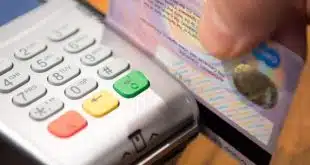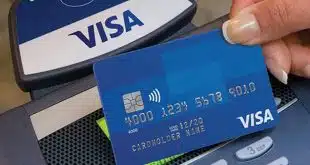The bank card networks are staking out major positions in the business of reloading prepaid debit cards, in a move that leverages their existing networks and could give a boost to efforts to bring electronic financial services to the underserved consumer market. At the same time, their entry into reloads promises significant new fee income for merchants, prepaid program managers, and banks alike. Visa USA, which worked on its ReadyLink network for two years, began flowing reload transactions in December and now boasts 1,550 merchants already participating in Safeway Stores Inc.'s Blackhawk prepaid network. An additional 5,300 7-Eleven Inc. locations in the U.S. are expected to come onboard later in the year. MasterCard Worldwide, which processed its first reload transaction on its rePower network in December, has an agreement with InComm Inc. to market rePower to InComm's base of 145,000 U.S. merchants (Digital Transactions News, Dec. 21, 2006). The business of allowing cardholders to reload value on prepaid plastic is not new. Networks like Blackhawk and Green Dot Inc. have been doing it for some time. But both bank card networks see value in leveraging their brand names and extensive transaction-networking infrastructures. “We spent hundreds of thousands of dollars building our brand?it means safety and security to our customers,” says Ron Hynes, who, as vice president of prepaid product development at MasterCard, is responsible for the Purchase, N.Y. company's prepaid card business in the Americas. “[RePower] also allows transactions to flow seamlessly from the point of sale to the issuing bank and back to the point of sale in the same manner as a purchase transaction. That's a huge value add. We can leverage our existing connections, and settle [reload] transactions through the normal MasterCard settlement process.” Since most top-ups and reloads are made by consumers using cash, processing reloads also allows the networks and their banks to serve a segment of society currently disconnected from the world of checking accounts, cards, and other conventional financial services. Indeed, Hynes hopes rePower will let MasterCard move at least some of these customers along what he calls a “continuum” toward full-blown electronic transaction services. “We give the unbanked a card, and now if we add cash reloading to that, now they have some semblance of a deposit relationship,” he says. Reload transactions also promise a steady stream of fee income to merchants, banks, and networks. While prepaid cards have proliferated in recent years, much of this growth was driven by disposable gift cards. With reloadable cards, merchants can collect initial fees and then additional charges for each reload. On Blackhawk's network, a reloadable card carries a price of $9.95, and each reload then costs $3.95. Merchants share these fees with acquirers, issuers, and networks. Visa, which late in February announced six issuing banks had either implemented ReadyLink or were working towards implementation, sweetens the proposition somewhat for acquirers by providing for a so-called reverse interchange fee of 75 cents, paid by the issuer. Reload transactions flow in the opposite direction of standard credit and debit payments, with acquirers making guaranteed settlement deposits with issuers after merchants have collected cash value. MasterCard, fearing such pricing might discourage issuer participation, passes rePower transactions at no interchange. In both systems, issuers collect standard debit interchange?around 1.3%–on each prepaid purchase transaction, so they benefit from extending the life of prepaid cards through reloads. So far, Marshall BankFirst, Sioux Falls, S.D., is participating as an issuer in both ReadyLink and rePower. Visa says Bank of America, MetaBank, National City Bank, and West Suburban Bank are in the process of joining ReadyLink, while U.S Bank has adopted it for its payroll card program. Issuers decide what range of bank-identification numbers (BINs) to open for reload, and then authorize or decline transactions based on load amount and other considerations. Merchants participating in ReadyLink, besides 7-Eleven, include locations of Safeway, Carr's, Dominick's, Vons, and Randalls.
Check Also
Visa Says It’s Positioning Itself to Be a ‘Hyperscaler’ in Payments
Visa Inc. chief executive Ryan McInerney touted the card network’s ability to build and deliver …





